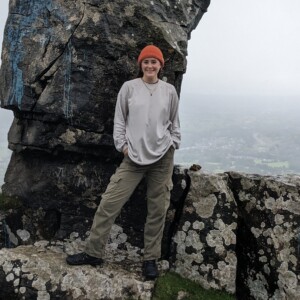
Lydia Hemmings
University of Birmingham
Project
Assessing the viability of magnetic susceptibility as an exploration tool in granites
Supervisors
- Carl Stevenson
- Marco Maffione
PhD Summary
The magnetic susceptibility of granite is affected by the action of hydrothermal fluids due to the deposition or leaching out of magnetic materials. Hydrothermal alteration can occur during emplacement and crystallisation and is associated with the deposition of key resources such as lithium and copper and can be an indication of geothermal potential. This project aims to carry out detailed rock magnetic and structural analyses that will establish the connection between magnetic mineralogy, faults, and mineralisation in granitic bodies. This will then be linked with radio-isotopic geochronological data to interpret how and when these features formed.
Previous activity
I originally obtained my masters in Materials Science and Engineering. I then worked as a graduate geoenvironmental engineer for 6 months before returning to the University of Birmingham as a laboratory technician in micropaleontology. I did this job for 8 months leading up to starting my PhD research.
Why did you choose doctoral research?
I have found that the nature of Doctoral Research suits me and the way that I enjoy working. I love the independence and control over my work, working with other passionate people, the novelty of the research, and the constant challenge. I’m grateful for my time in industry as it gave me many practical skills I rely on heavily in my research; however, I found I enjoyed the theory and problem solving much more than other aspects of the role.
Why did you choose CENTA?
I chose a CENTA studentship because it offers so many opportunities for training and personal development, as well as a network of students to become a part of.
Future plans
My plan is to continue within research in the future and this studentship offers both the training and networking opportunities for this to become a reality.
